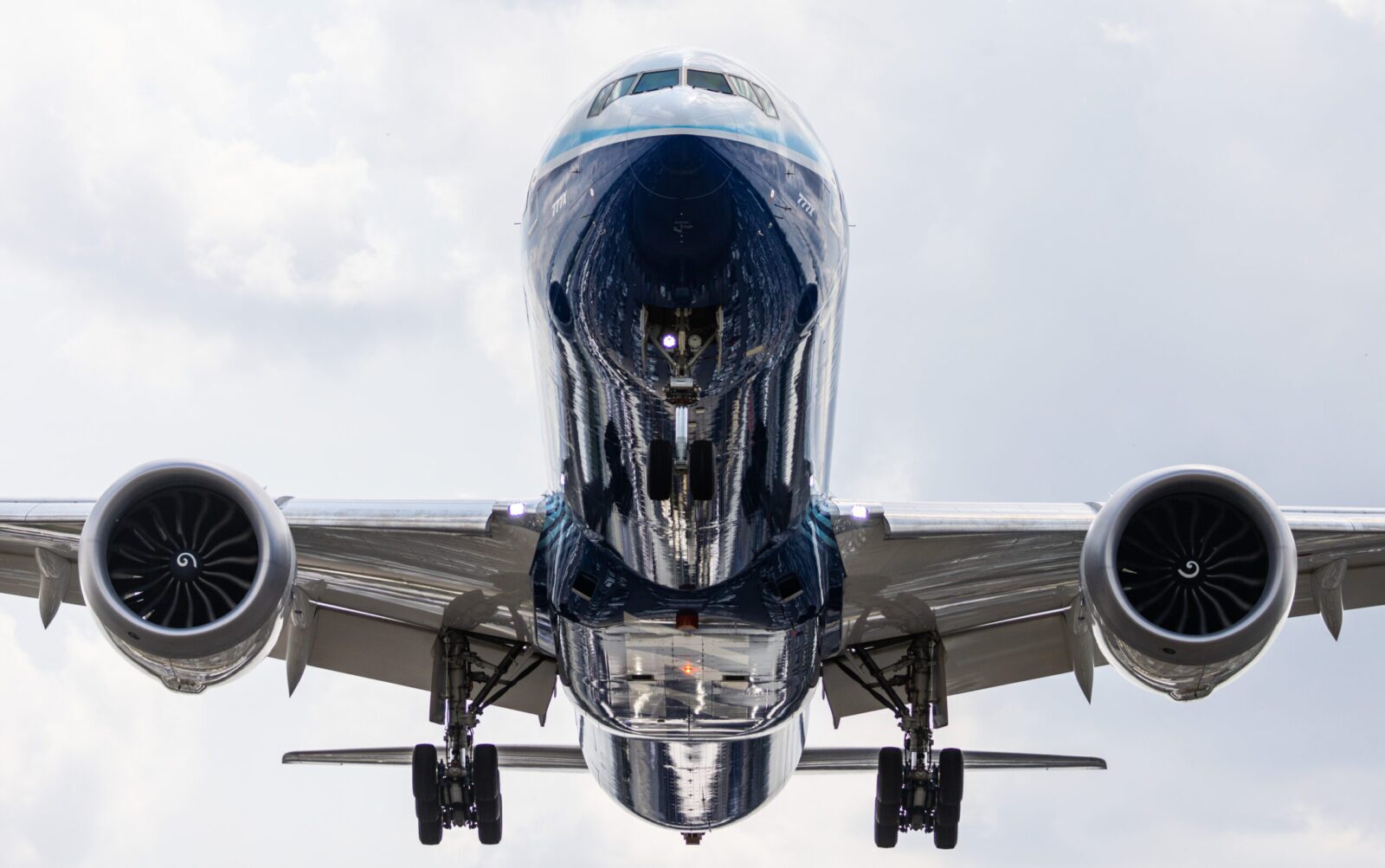Stay Up to Date
Submit your email address to receive the latest industry and Aerospace America news.
Boeing reported today it incurred a nearly $5 billion charge in its most recent quarter over delays in testing its future 777X jetliner.
In a Wednesday call with analysts, Chief Financial Officer Jay Malave said authorization to start the next major phase of certification testing for the 777X has been pushed back as FAA works with the company “through the supporting analysis” that enables it. That phase, initially expected to begin by September, could now start in early 2026, pushing the first customer deliveries to sometime in 2027.
The $4.9 billion pre-tax earnings charge Boeing incurred as a result, he said, will be spread over the next decade. “While disappointing, the reset allows us to operate to a higher confidence plan and allows our customers to manage their operations accordingly,” Malave said.
CEO Kelly Ortberg said this delay prompted the company to take “a step back” and acknowledge it underestimated the work and time required to get the required approvals. He noted that he’s spoken to FAA Administrator Bryan Bedford about finding ways to streamline required data submissions to improve the process.
“While we’re turning the corner, we’re well aware of the work ahead of us to fully recover our performance, particularly on our commercial development and certification programs,” Ortberg said.
Overall, the company reported July-September sales of $23.3 billion, up 30% from the same period last year. Boeing recorded a net loss of nearly $6 billion, less than the nearly $8 billion it lost in the same three-month period in 2024.
Malave touted the company’s delivery of 160 aircraft during the quarter, its highest since 2018, which generated $11.1 billion in revenue for the Commercial Airlines division before the 777X charge.
Looking ahead, Ortberg said that continuing to increase 737 MAX production remains a priority. FAA earlier this month approved Boeing to produce 42 of the aircraft a month, removing the 39-per-month cap put in place last year after the door plug blow-out aboard a MAX 9 operated by Alaska Airlines.
“We expect rate increases beyond 42 per month will go in increments of five, and while rate increase breaks won’t be earlier than six months apart, we will remain disciplined, and we won’t move to higher rates until we achieve stability and readiness,” Ortberg said. “Our team continues to work under the oversight of the FAA in building safe, high-quality commercial airplanes that comply with all air worthiness certification requirements.”
About Hope Hodge Seck
Hope is an award-winning freelance reporter and editor based in Washington, D.C., who has covered U.S. national defense since 2009. A former managing editor of Military.com, her work has appeared in The Washington Post, Popular Mechanics and Politico Magazine, among other publications.
Related Posts
Stay Up to Date
Submit your email address to receive the latest industry and Aerospace America news.




